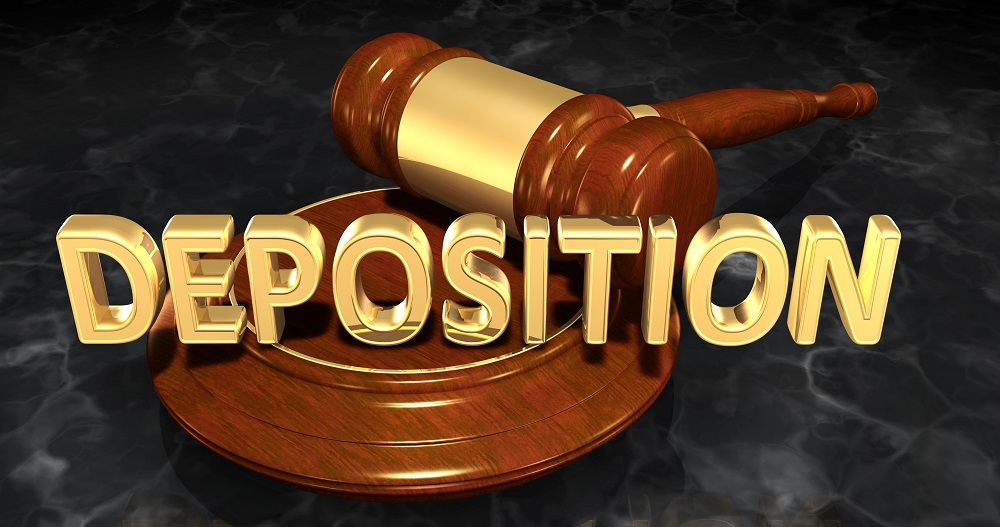Do Personal Injury Cases Settle After Deposition in Philadelphia?

There are plenty of factors that could contribute to whether personal injury cases would settle following depositions. In general, a case could settle at any stage in the case based on how both parties present the circumstances and facts surrounding the case. The answer to whether or not personal injury cases settle after deposition depends on whether you and your representation can come to an agreement with the liable party's insurance provider.
For instance, the liable party’s insurance provider might not be willing to settle if it doesn’t believe that the claimant’s claims are valid. Conversely, the insurer might not also want to settle if there’s overwhelming evidence that clearly demonstrates their client’s fault and the settlement requires a massive amount.

The legal system, in general, typically leans toward settling personal injury cases instead of trying out cases due to the high costs of litigation. In most cases, all involved parties typically settle the case to avoid spending more money than they have to. On the other hand, if the insurer’s settlement offer is too low, your Philadelphia personal injury lawyer may advise taking your case to trial. This is especially true if your lawyer believes that you can win the case.
The Stages in a Personal Injury Case
To better understand how personal injury cases settle after deposition, you should understand what generally happens in a personal injury case. Significant factors that could impact how long a case could go on or settle include:
- The time needed to properly investigate the facts of the case
- The severity, extent, and time required for the injury to heal, or if there are permanent and/or disabling injuries
- How long medical treatment will take
- The willingness of the parties to negotiate
Broadly speaking, personal injury cases typically go through the following stages:
Obtaining Medical Treatment
Proper treatment must be done right after the accident and must continue under a doctor’s supervision.
Seeking Help from an Experienced Personal Injury Lawyer
Even when it’s clear that the other party was at fault for the accident, the liable party’s insurance provider may attempt to dispute liability. Insurance providers try to do this by undervaluing the claimant’s injuries and related losses or arguing that fault for the accident is questionable.
Conversely, insurers may also try to get claimants to accept a low settlement offer. This usually happens when insurers know that claimants have a valid claim and that the compensation would be significant. This is typically the stage where injured victims consult with a personal injury lawyer to better understand their case and explore their legal options.
Investigation of the Case Facts
This includes speaking to any witnesses, taking and reviewing photos and videos of the accident scene, reviewing police reports, medical records, and other relevant documents, and other tasks related to gathering factual evidence. Your lawyer will likewise estimate your damages, which can include your medical expenses, lost wages, pain and suffering, and property damage, among others.
Negotiations with the Liable Party
At every stage of your case, up to the trial (if it reaches the court), your Philadelphia personal injury lawyer will communicate with the liable party’s insurance provider and negotiate a fair settlement.
Litigation, Or When Personal Injury Cases Settle After Deposition If Possible
If negotiations with the liable party and insurer fail, your lawyer will file a personal injury lawsuit and initiate the discovery process. In all cases, discovery is the longest stage of litigation. This is also when depositions occur. Depositions involve questioning the other party and/or any witnesses. They’re taken under oath, recorded, and used later at trial. Both sides will also try to collect more evidence to strengthen their cases. At the end of the discovery period, both sides will be able to see the weaknesses and strengths of their cases. Hopefully both parties will agree to a settlement, but not all personal injury cases in Philadelphia settle after deposition.
Mediation
In most cases, the parties in a personal injury case go through mediation instead of going directly to trial. During the mediation process, a third party, neutral negotiator will mediate settlement negotiations between parties. If the case still doesn’t settle during mediation, the case goes to trial.
Trial
Generally speaking, most personal injury cases settle without ever reaching the litigation and trial stages because of the risks and costs involved. Most personal injury cases settle after deposition, or at some other stage before trial. Keep in mind that not all cases are the same, and each one has its own merits and weaknesses. Only your lawyer, who’s familiar with your case, can determine whether settling or going to trial is best.
Contact a Lawyer to Ask When Your Personal Injury Case Might Be Settled
Personal injury claims could and do settle at any stage in the case. Whether your case settles or goes to trial would significantly depend on the willingness of the liable party to negotiate and agree to a fair settlement amount. Regardless, your lawyer preserves your right to receive fair compensation whether or not personal injury cases settle after deposition. Call Mattiacci Law, LLC, at 215-709-7915 or reach out to us online to schedule your free case consultation with our experienced Philadelphia personal injury lawyer.
